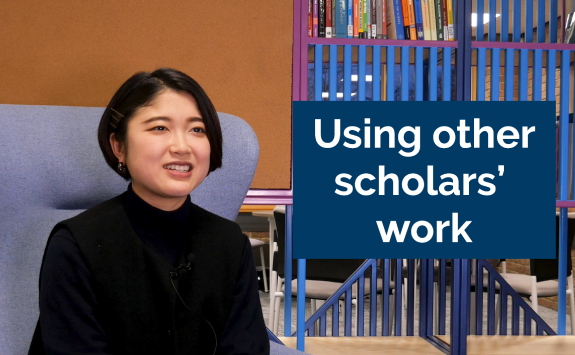Using other scholars' work
Engaging with other scholars’ work is one of the most important and rewarding aspects of studying at university. However, you need to make sure you always use scholarship honestly and properly.
Studying at university isn’t just about learning a discipline such as medicine or law. It’s also about deepening our understanding of knowledge itself.
The way people think about knowledge can vary between different cultures. This means there may be different expectations and conventions around how knowledge should (and should not) be used. In UK academic culture, knowledge is treated as a kind of property. This means scholars continue to ‘own’ the knowledge they have produced, even after they have published it.
Anyone can use knowledge that has been legitimately published. However, they must use it correctly, by acknowledging where it came from.
As a student at Newcastle University, you must follow these UK academic conventions. When you use other writers’ work, you must paraphrase it or quote it, and you must reference it correctly.
Paraphrasing and quoting
There are two ways to use other scholars’ work correctly in the UK - you can paraphrase it, or you can quote it. Both are equally acceptable, but they’re useful in different ways.
- Paraphrasing means using your own words to communicate someone else’s ideas. It’s a useful way of showing you have understood a writer’s ideas, when the exact wording of those ideas is less important.
- Quoting means using someone else’s exact words. It’s useful when the original words really matter because of their exact meaning and / or their stylistic qualities.
Which should I use?
Students often ask which is better – paraphrasing or quoting? The answer is, it depends on the context.
Most of the time, you should paraphrase other writers more often than you quote them. If you can adequately express their ideas using your own words, you should try to do so. However, there are times when quoting other writers’ exact words is essential to preserve their meaning and / or their stylistic qualities. This may be particularly true in some disciplines (e.g. law, philosophy or literature).
Paraphrasing other writers takes more time and effort than quoting them. However, your tutors know this, and they will give you credit for paraphrasing effectively.
The best student work usually includes a mixture of paraphrasing and well-chosen quotes. Try to decide which is most appropriate for your work, depending on the context.
Every time you use other scholars’ work, you have a responsibility to reference it correctly. Using other scholars’ work without referencing it correctly is known as plagiarism, and it is not allowed.
Plagiarism often happens through carelessness, because students do not properly understand how to quote, paraphrase and / or reference other writers correctly. However, the consequences for students who plagiarise can be serious, even if they have plagiarised accidentally.


